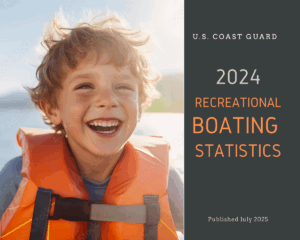
Consuming Alcohol While Boating
- Boating can magnify the side effects of alcohol use. Effects include impaired judgment, reduced balance and poor coordination. See “Almost A Perfect Day.”
- Drunken passengers can easily fall overboard, swim near the propeller, lean over the side, or stand up in small vessels, causing vessels to capsize.
- Sun, wind, boat and wave action intensify the effects of alcohol.
- Alcohol greatly increases the effects of cold water shock.
The Law
- Under federal law and in most states it is against the law to operate a boat or water ski with a blood alcohol concentration (BAC) of 0.08 percent or more
- A boat operator can be arrested even when the BAC is less than 0.08% if conditions are deemed to be unsafe
- In some states, if convicted, a boater may be sentenced to jail for up to 6 months or longer and assessed fines of up to $1,000. Two convictions within 7 years could add a jail term of up to 1 year or more. More often than not a boater will be transported to and booked into jail.
- If a boater is operating under the influence of drugs or alcohol and cause the death of someone they could be charged with felony manslaughter, besides having to live with a guilty conscience for the rest of their life.
Blood Alcohol Concentration
- BAC .01% to .04% – Maybe DUI. Loss of judgment, decreased coordination, thinking dulled, changes in mood and behavior.
- BAC .05% to .07% – Likely DUI. Operating ability impaired. Walking, speech, and hand movements clumsy. Chance of accident greatly increased. If a boater is a commercial pilot, they will be considered legally under the influence at this level.
- BAC .08% and over – Definitely DUI. Inhibitions and judgment seriously affected. Responses slowed and dull. High risk of accident. At .08%, a boater is legally under the influence of alcohol.



